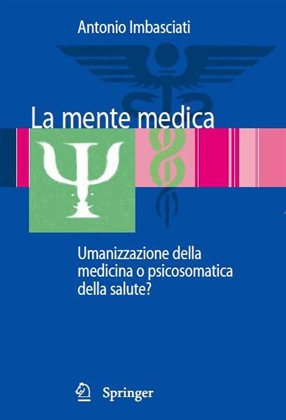
The Doctor’s Mind. What does it mean to humanize Medecine
Progress in medicine has made the physician’s practice more technical and has inevitably reduced the mental and operational spaces that he used to devote to the human relationship, which in the past he was able to establish with his patients. In this regard, the physician did effectively embody the Latin saying medicus ipse farmacum. Also the current medical training, with an ever increasing necessity for biological and technical knowledge and the continuous updating required in these fields, decreases the possibility for the doctor as a person to take care of the patient as a person. What Balint described in his book Doctor, patient, and illness in 1957 is a myth by now. Inevitably the organisation of hospitals and other health facilities has also become burocratic, erasing all possibility of being “humane”. The shortage of resources –which is particularly severe in Italy– has enhanced the impersonal aspect of the health services and has sometimes caused “burn out” problems among the staff. Today the patient often feels like being part of a machinery to be fixed. As a result of this transformation of the doctor’s role, there is the need for “rehumanizing” or rather for a new “humanization” of medicine. The legislator has therefore created many differentiated professionals –nurses, physiotherapists, rehabilitation therapists, social-health workers and others– and their respective qualification degrees (the so-called health degrees) which were originally three-year and now five-year training programmes with different curricula including psychology, sociology, pedagogy and anthropology adjusted to each degree.
Other staff collaborate with these new health professions: psychologists, social workers, educational staff, pedagogists – an entire category defined as “helping professionals”. Health has to be differentiated from illness free condition, as W.H.O. defines. They all have been given the responsibility of renewing and caring for the old human relationship between doctor and patient, which today is affected by the progress of many other non-medical sciences made necessary by the numerous current complications of our society.
They belong to the so-called “human sciences”: a “humanization of medicine” is therefore called for. However, both terms are reductive and cause quite a misunderstanding of their meaning, in a more general sense, in the health system culture, and consequently in the way in which they are applied. The above-mentioned sciences are differentiated and are scientifically developed. To group them under ‘human sciences’ could conceal their scientific nature and the specificity of the helping professionals, leading to misunderstand and simply consider them as nice sensitive people who want to help the others and wish to devote themselves to it more or less idealistically. Therefore, the “humanization of medicine” is often regarded as being not much more than just social voluntary job.
Unfortunately this happens as a result of three factors: a) Lack of resources to allow an efficient educational programming of each medical and health graduation programme, i.e. the severe financial situation of universities in Italy. b) Strength of the traditional medical culture, which for a long time has kept itself apart from the development of other sciences. c) General ignorance and presumption vis-à-vis psychological sciences. Medical professionalism –technological as it is today and subject to the mistaken impression of being charismatic– is encroaching professions which should be differentiated, “other”, not being part of its competence. We hereby experience a process of “medicalization of the health services” – a process that raises much complaint and is suffered without any alternative.
The book is addressing this problem, outlining its long-term consequences from a psychosomatic and transgenerational view in a future scenario that could lead to concerns about social and mental health.
